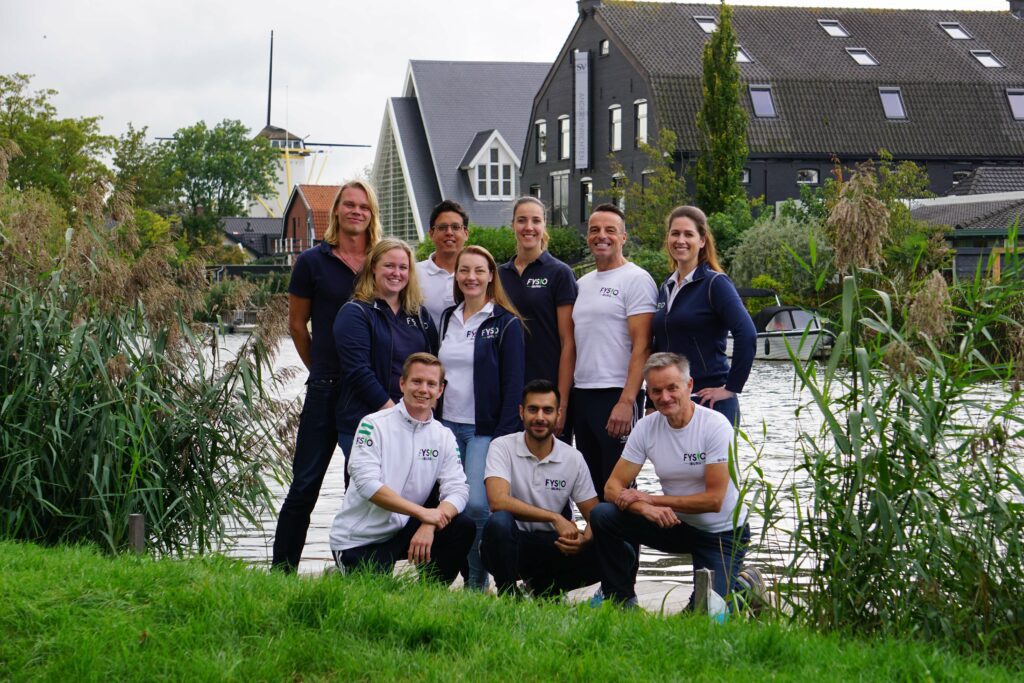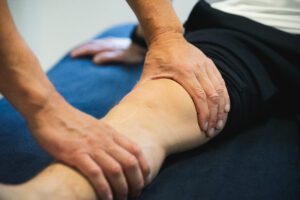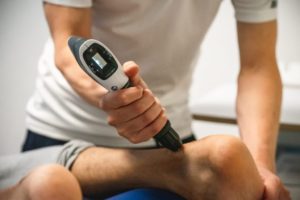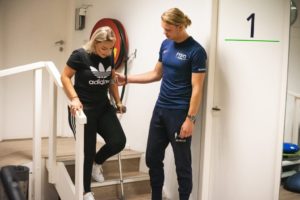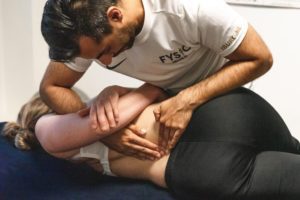Knee pain can be a real life-changer. Whether it’s during exercise, a simple walk, or even when you get up from a chair—knee pain limits your mobility and quality of life. Unfortunately, the hard truth is that knee pain rarely goes away on its own without some action. In fact, ignoring it can make it worse and lead to long-term limitations. Read on to learn more about the causes of knee pain and how physical therapy can help you move pain-free.
The most common causes of knee pain
Knee pain has many causes, ranging from acute injuries to chronic conditions. Here are some common culprits:
Overload
Whether you do intensive sports or have a sedentary job: overloading the knee joints is one of the most common causes of pain. Think of running without a proper warm-up or sitting in the same position for too long.
Injuries
A twist, fall, or sudden movement can lead to injuries such as a torn meniscus, torn knee ligaments, or patellar tendonitis.
Wear and tear/arthrosis
With osteoarthritis, the cartilage in your knee gradually breaks down, causing pain and stiffness. This is most common in people over 50, but younger people can also experience it.
Incorrect posture
Incorrect posture or gait can put extra pressure on the knees, which can lead to complaints over time.
Chronic conditions
Conditions such as rheumatism or bursitis (inflammation of the bursa) can cause persistent knee pain.
Why the pain doesn't go away on its own
The body has a great ability to heal itself, but when it comes to knee pain, that is often not enough. Without the right approach, you can create a vicious circle of pain and inactivity. By moving less, the muscles around the knee weaken, putting even more strain on the joints. This can worsen the pain and delay recovery.
How Physiotherapy Can Help
Physical therapy offers an effective solution for most types of knee pain. Here’s how:
- Targeted diagnosis: A physiotherapist will thoroughly investigate the cause of your knee pain and draw up a personal treatment plan.
- Exercise therapy: Specific exercises help strengthen the muscles around the knee, which reduces pressure on the joints.
- Improve mobility: Physiotherapy also focuses on improving your posture and gait to prevent further complaints.
- Pain relief: Techniques such as massage, dry needling or taping can provide immediate relief.
- Prevention: You will learn how to prevent future knee problems so that you can remain active and pain-free.
Don't wait any longer: Tackle your knee pain!
Don’t continue to walk around with knee pain hoping it will go away on its own. The longer you wait, the harder it can be to fully recover. Take the first step toward a pain-free future today.
Make an appointment at Fysiotherapie Iburg and discover how we can help you. Our team of experienced physiotherapists is ready to help you with your complaints and get you moving smoothly again.
Make an appointment now and take your first step towards recovery!

